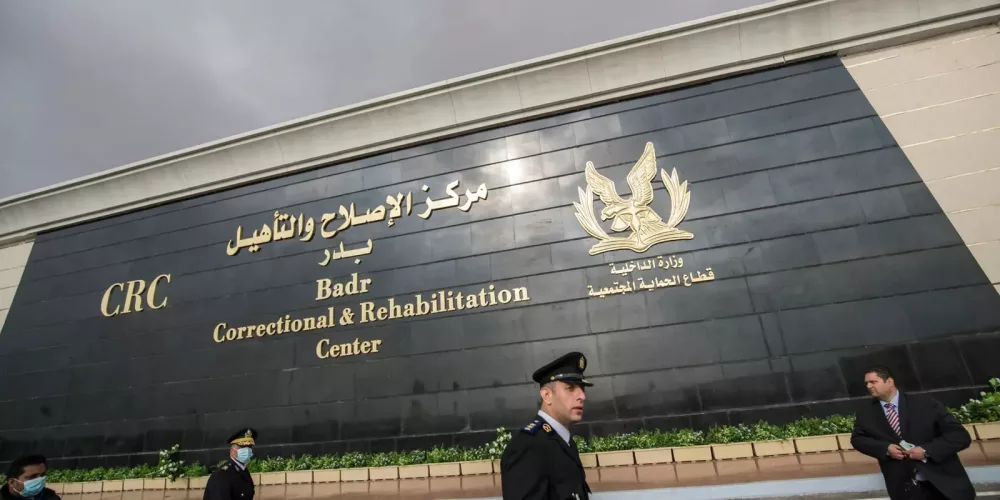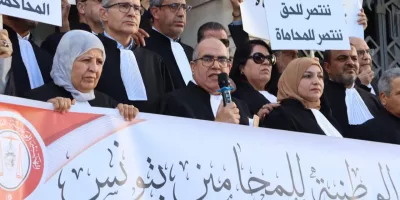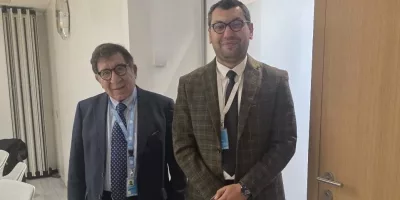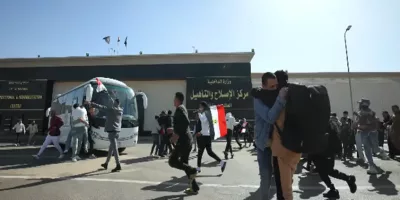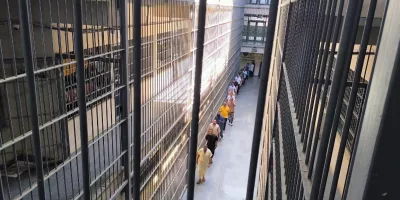The undersigned human rights organizations express grave concern over conditions in Badr 3 Prison, east of Cairo, where detainees – most of them prisoners of conscience and political opponents – are subjected to severe abuses that endanger their lives and their physical and psychological well-being. The prison has become a stark symbol of systematic collective punishment, operating outside all legal and humanitarian standards, and is now effectively a tool of slow death.
Although some reports leaked in recent weeks about repeated suicide attempts and hunger strikes, the authorities quickly imposed a complete blackout on events inside the prison. For more than a week, no information has reached the families of detainees, leaving them unaware of their fate. The prison’s isolation has deepened further as detainees have been barred from attending their court sessions, even though hearings are held at the court located within the security complex adjacent to the prison. Authorities claimed it was “not possible to bring them,” a pretext that heightens fears for their lives and indicates that systematic concealment has become a core feature of the repression policy in Badr 3.
Information from inside the prison points to a troubling rise in suicide attempts. Surgeon Dr. Sayed Hikal, Amin al-Serafi, Khaled Said Morsi (nephew of the late President Mohamed Morsi), and Dr. Abdullah Shehata have all made repeated suicide attempts due to despair and deteriorating conditions. Engineer Asaad al-Sheikha attempted suicide by swallowing a large quantity of medication during a hunger strike; he was barely saved in the absence of adequate medical care. Dr. Mohamed El-Beltagy collapsed unconscious in his cell, and his health condition remains unknown. Dr. Ahmed Aref was also transferred to the infirmary in critical condition after his blood sugar dropped to dangerously low levels. He confirmed that he will continue his hunger strike until an independent human rights committee is allowed to visit.
One of the most tragic cases was that of detainee Khalil al-Aqeed, who attempted suicide by violently slashing his wrist, requiring 36 stitches. Human rights lawyer Mohamed Abu Harira has also been subjected to serious threats of transfer to al-Wadi al-Gadid Prison under conditions that could endanger his life.
Since the recent escalation began inside Badr 3, no fewer than sixteen detainees have attempted suicide, some more than once. Meanwhile, the health of other prominent political figures – including Bassem Ouda, Khaled al-Azhari, Mohamed Saad Aliwa, and Osama Yassin – continues to deteriorate, while they are denied adequate medical care or transfer to civilian hospitals.
Recently, documentation confirmed that the authorities replaced the leadership responsible for running Badr 3, in an apparent attempt to control leaks about the serious violations. However, this move did not improve detainee conditions but instead intensified their isolation, reinforcing fears that the aim is concealment rather than reform. The undersigned organizations stress that replacing individuals does not absolve the Egyptian state of its legal and criminal responsibility for these violations, but rather demonstrates that they are part of a systematic institutional policy, not isolated cases.
Testimonies also show that the prison administration uses systematic methods of collective punishment to humiliate detainees: depriving them of exercise and natural ventilation, confiscating personal belongings, and confining them for long periods in cramped cells with constant bright lighting and surveillance cameras. These are not mere administrative shortcomings but deliberate tools of physical and psychological exhaustion, in flagrant violation of human dignity and the UN Standard Minimum Rules for the Treatment of Prisoners (the Mandela Rules).
The policies of denying medical treatment, preventing family visits, and stripping cells of basic necessities amount to torture and cruel treatment prohibited by international law. This pattern of violations reflects a clear intention to use detention conditions as a weapon of collective punishment, reaching the level of inhuman treatment criminalized by the Convention against Torture.
These facts, documented through multiple testimonies from inside the prison as well as from families and lawyers, reveal that what is happening is not a series of isolated incidents but a deliberate policy of total isolation, denial of basic rights, and abandonment of detainees to medical neglect and suicide. The authorities’ deliberate suppression of information and prevention of detainees from attending judicial sessions further raises fears of even more serious violations, potentially leading to deaths under torture or as a result of deliberate medical neglect.
The undersigned organizations condemn these violations and hold the Egyptian authorities – in particular the Ministry of Interior, the National Security Agency, and the Public Prosecutor – fully responsible for the lives and the physical and psychological safety of the detainees. They call for an independent and transparent investigation into detention conditions, the restoration of family visits and legal communication, the immediate transfer of critical medical cases to civilian hospitals, and an end to the deadly policy of isolation. These demands are not political or exceptional but binding legal obligations on Egypt under the Convention against Torture and the Mandela Rules.
The organizations also call on the international community – including the United Nations, relevant international mechanisms, the European Union, and governments committed to human rights – to act urgently to pressure the Egyptian authorities to end these violations, allow independent monitoring visits inside the prison, and ensure the protection of detainees’ lives. They specifically call for engaging the United Nations Special Procedures — including the Special Rapporteur on Torture, the Special Rapporteur on the Situation of Human Rights Defenders, and the Working Group on Arbitrary Detention — to investigate these violations and hold the Egyptian authorities accountable.
The continuation of these repressive policies threatens an imminent humanitarian catastrophe inside Badr 3 that could lead to mass deaths or repeated suicides. Urgent international intervention is no longer optional but an immediate humanitarian duty.
Signatory organizations
- Committee for Justice
- El-Shehab Center for Human Rights, London
- Arab Media Freedom Monitor
- Aab Foundation for Civil Society and Human Rights Support
- Najda Human Rights Organization
- Egyptian Commission for Rights and Freedoms
- Al-Nadeem Center
- Dfater Masr
- Their Right – To Defend Prisoners of Conscience
- Egyptian Coordination for Rights and Freedoms
- Free Voice Organization for the Defense of Human Rights (Paris)
- Human Rights Monitor
- EFDI International
- Refugees Platform in Egypt

